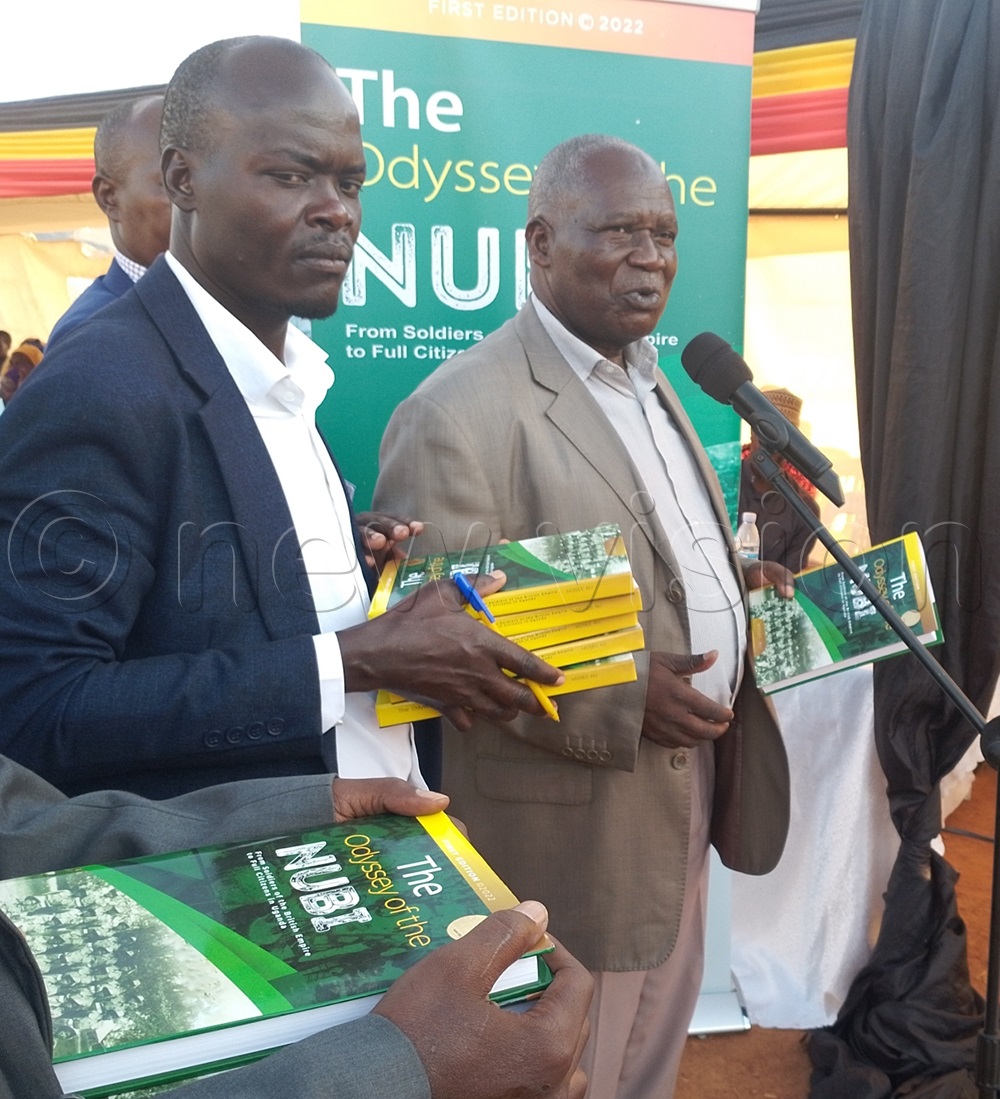_____________
LUWERO – Public service minister Wilson Mukasa Muruli has advised communities to preserve their culture.
The minister says the act is the only guarantee to keeping their identity and fighting off negative influence, especially immorality from outside.
Muruli says African people have, despite the numerous challenges posed by colonialism, managed to preserve their identity as Africans because of their culture.
“Throughout our history, we Africans have suffered very serious challenges from our neighbours, but we have survived as Africans just because of our culture,” he said, adding that the importance could not be over-emphasised.
He was on Saturday, May 25, 2024, speaking during the Nubian Cultural Festival in Bombo town, Luwero district. The annual event that was organised by the Nubian Development Association attracted Nubian delegations from the region and Europe.
During the same function at Bombo SS and presided over by second Deputy Prime Minister Moses Ali, Muruli also launched a book titled: The Odyssey of the Nubi.
Authored by Moses Ali, who is a prominent member of the Nubian community, the book narrates the century-long journey of the Nubians from being soldiers of the British empire to becoming Ugandan citizens.
Mukasa said the Nubians, whose ancestry is in southern Sudan, came to Uganda as soldiers of the colonial army, and are still maintaining their identity as Nubians. He said this was due to the resilience of the community members and urged other Ugandans to follow suit.
“If you look at the history of the Nubians, there would be no Nubian community today. It’s the resilience which has done it,” he said.
Mukasa Muruli added that communities that have failed to stick to their cultural values have ended up falling victim to unsustainable Western practices like contract marriages.
The chairperson of the Nubian Development Association, Faruma Kalimala, said they wanted to use the association to pull their members out of poverty and create opportunities to secure their future.

Mukasa said the Nubians, whose ancestry is in southern Sudan, came to Uganda as soldiers of the colonial army, and are still maintaining their identity as Nubians. (All Photos y Frederick Kiwanuka)
Faruma said the majority of the Nubians were landless and living in abject poverty.
She added that they are looking for shillings 350 million to start an event management business to generate income for running the association.
Mukasa who contributed shillings one million towards a fundraising drive to raise the 350 million, urged the association leaders to be honest, involve all the members who scattered worldwide, and avoid power struggles.
History
The Nubians who were recruited as mercenaries from southern Sudan, formed the core of the then-colonial Fourth Kings African Rifles (KAR) and were used by the colonialists to bring the whole Uganda under British control. KAR had 1,065 soldiers, 600 of them Nubians.
They were specifically used by the British colonialists to suppress anti-British rebellions.
After fulfilling their mission, the majority of them eventually settled in Buganda, especially in Bombo where they were given land by the Buganda government in 1908.
Other Nubians were settled in different parts of the country, especially the North while others settled in neighbouring countries like Kenya.
While other locations countrywide have over time evolved into town councils and municipalities, the story of Bombo town has been that of decline.
Bombo which had been elevated to a municipality during Iddi Amin’s regime in the 1970s, was in 1989 relegated to a town council, due to a decline in population and social amenities.
With the reestablishment of the barracks in 1971, several amenities that used to belong to the council were engulfed by the army. Notable among the amenities that were taken by the army were: A playground, and a 200-bed hospital built by the Buganda government.



